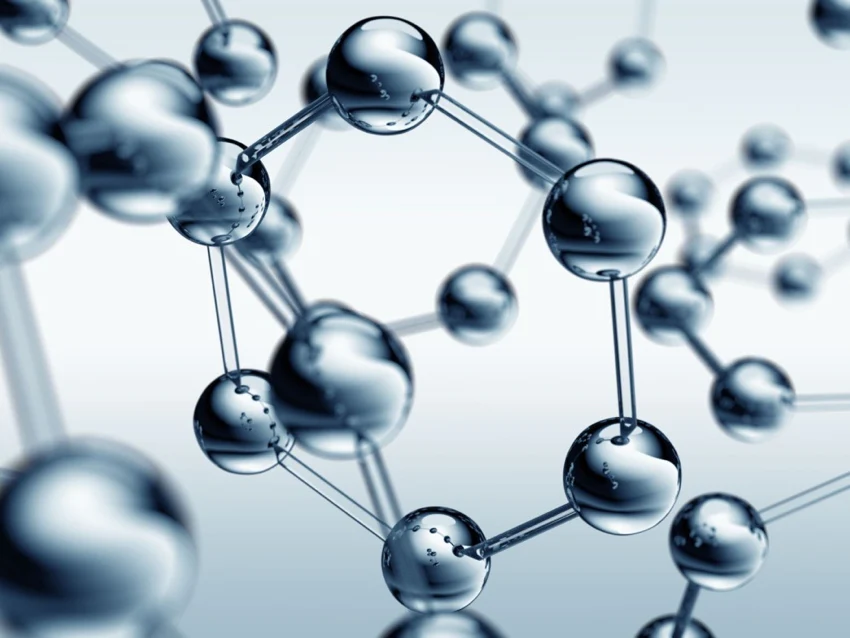Summary; Davin’s Tips.
Much like stem cells, peptide use will be increasing in the next two decades when clinicians & researchers find new molecules & delivery methods to enhance the skin’s regenerative properties. As of late 2020, the studies on both stems & peptides are still new. I do suspect that skin peptides will have a synergical role, alongside time tested, proven mainstream skin care with ingredients such as retinoic, ascorbic & skin acids, along with antioxidants. The future looks promising!
What is the science behind skin peptides?
Peptides are one of the trendiest molecules in anti-ageing medicine. Applied to skin, peptides, in theory can increase collagen & elastin production, revitalising your skin and making it more resilient and stronger. Peptides claim to improve the size of pores, in addition to decreasing fine lines & wrinkles. Peptides can be an asset to your skin, but the results will never be the same as cosmetic procedures such as chemical peels, lasers & hyaluronic acid dermal replacements.
Which peptide is best for skin?
The most commonly used cosmetic peptides, include copper peptides contain molecules claiming to maximize the amount of collagen in your skin, The three main peptides in this class include:
- Acetylhexapeptide-3
- Pentapeptides, including pentapeptide-3 and pentapeptide-18
- Tripeptide-3
Do skin peptides actually work?
The short answer is that we’re not exactly sure as good studies at the time of writing (late 2020) are limited in number. Based on the science that we’re now using, peptides have the potential to be synergistic with other proven molecules in dermatology, including vitamin A, B, C, retinol, retinoic acid & other skin care actives. I do believe that complementary synergistic skin care is the way forward.
Are peptides or retinol better?
Peptides are great for sensitive skin or skin that is new to an anti-aging routine. They are less irritating compared to retinoic acid, however the true role may be synergistic. This means used together they may exert a greater outcome-result than using either or.
What are Copper Peptides?
Arguably the best known peptide is copper peptide, and you may have seen it highlighted as an ingredient in anti-aging creams. The hype began in the 1990s (true!) due to the fact that the building blocks of your skin are formed by copper. Copper peptides can also assist in molecule delivery & wound healing. So logic would dictate that you need copper peptide in your skincare products to repair your skin.
There are no great studies comparing copper peptides with time tested molecules including retinoic acid or antioxidants, hence it is difficult for dermatologists to recommend peptides as monotherapy. Logically, the answer lies in synthetic use, however we are still awaiting robust studies.
Copper peptides are used in creams, lotions, serums & gels as well as in shampoos and hair products designed for those with hair loss.
What is the Best Way to Get Peptides into the Skin?
While peptides are found in tablets, injectables, creams, lotions, masks, face washes and serums, many skincare experts advise choosing a serum. Why? Serums are highly concentrated & penetrate deeply into the skin. A cream is another good option as the product sits on the face for a prolonged period of time, while a face wash is only on the skin temporarily. Another method of delivery is called ‘laser assisted epidermal penetration.’ For example, copper peptides can be delivered using the newest fractional lasers.
What are the side effects of skin peptides?
Peptides, including copper & amino peptides are well tolerated by the skin. Irritation is super rare, & most caused by the vehicle the peptides are in, rather than peptides themselves.
What Are The Best Peptide-Infused Creams and Serums?
Not sure ATM, as I am still awaiting good scientific results. I do believe that peptides are complementary to proven vitamins including ascorbic acid, retinoic acid-retinol, & niacinamide. Much like your body, skin requires a multitude of nutrients to function at their peak level.
How do I incorporate peptides in my skin care routine?
A sensible skin care routine that involves skin peptides goes something like this;
AM: Gentle wash, SPF, Make up, with the option of antioxidants (Ferulic acid, Ascorbic acid, Tocopherol)
PM: Cleanser, peptide serum, moisturiser. Alternating every other night with niacinamide, retinol
Peptides are often one of many key ingredients in anti-ageing skin care. They are often combined with hyaluronic acid, a moisturizing ingredient that can hold up to 1,000 times its weight in water. A routine with peptides should incorporate retinol (a vitamin A derived ingredient that helps encourage cell turnover), ascorbic acid ( a collagen building vitamin with antioxidant and brightening effects) & niacinamide, a form of vitamin B. Some dermatologists advise against combining peptides with products containing AHAs (alpha hydroxy acids) as they may be counterproductive.


